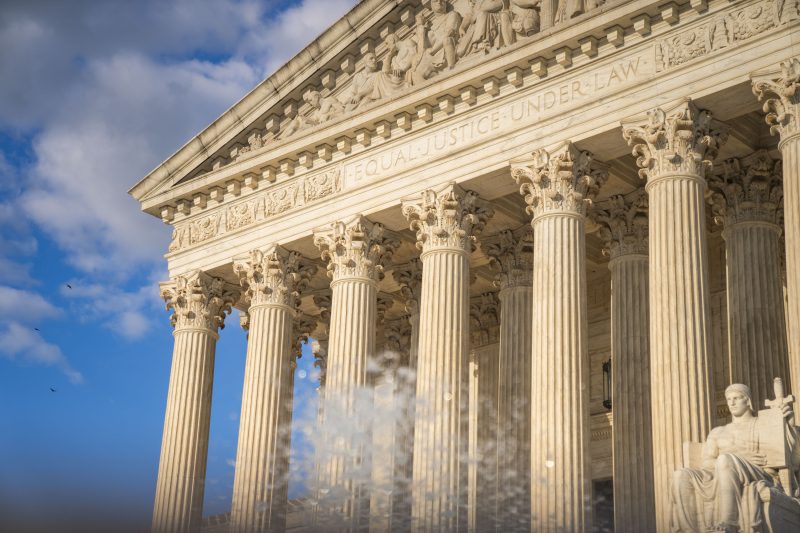The environmental fight that played out inside the Supreme Court on Wednesday was unusual in many ways: It featured poop, a whopping $10 billion fine and one of the nation’s greenest cities — San Francisco — battling the Environmental Protection Agency over water pollution rules in a case that could reverberate beyond the Bay Area.
During lively oral arguments, the justices appeared divided along ideological lines over a lawsuit brought by San Francisco arguing that EPA rules regulating how much sewage the city can discharge into the Pacific Ocean are so vague it can’t abide by them. The result: The city has wracked up billions in fines and counting.
“We simply want to understand our prohibition limits so we can comply with them,” Tara M. Steeley, the San Francisco deputy city attorney, told the justices.
The question the high court must decide is whether the Clean Water Act allows the EPA to impose generic prohibitions against violating water quality standards or whether the agency has to create specific pollutant limitations that give clearer guidance about when a line is crossed. For instance, San Francisco’s wastewater permit includes 100 pages of detailed rules on effluent limits, but also “narrative” restrictions such as “no discharge of pollutants shall create pollution, contamination, or nuisance” as defined by California’s water code.
Assistant Solicitor General Frederick Liu, arguing on behalf of the federal government, told the justices that the Clean Water Act authorizes the EPA to impose those generic prohibitions and that they offer an important backstop to more technical guidelines to ensure water quality remains high. He also said the EPA would like to give San Francisco specific standards, but the city has stymied those efforts by not providing better data to create them. The city disputed that claim.
“I want to be clear about the sort of information that we’re missing that made it impossible for us to impose anything other than these generic limitations,” Liu said in court.
San Francisco has an older wastewater treatment plant that combines sewage and stormwater. It can overflow during heavy rains, sending the wastewater to outfalls that are located off the coast in the Pacific Ocean. The city says it has spent billions of dollars upgrading the system to limit runoff.
The court’s three liberal justices sharply questioned San Francisco’s attorney, while the conservative majority seemed more skeptical of the EPA’s position.
“What in the statute prevents the agency from saying, in addition to or instead of the highly prescriptive…you can only discharge X amount, we want to set a goal, and we want to tell you that you’re obligated to not contribute to violating that goal?” asked Justice Elena Kagan, a liberal.
Chief Justice John G. Roberts Jr., a conservative, said the generic standards were similar to an older system of water pollution regulation that he said was difficult for parties to navigate: “It didn’t tell people in any predictable way what they can and cannot do.”
San Francisco petitioned the Supreme Court to take up the case after the U.S. Court of Appeals for the 9th Circuit sided with the EPA.
Some environmental groups had urged San Francisco to drop its lawsuit, warning that the court’s conservative majority could use the case to further limit the EPA’s authority. Court rulings in 2022 and 2023 curbed the agency’s ability to reduce greenhouse gases and protect wetlands from runoff. The San Francisco Board of Supervisors echoed that concern, voting in a non-binding resolution to urge the city to resolve the case quickly to avoid harming water standards nationwide.
The case has “very troubling implications,” said Becky Hammer, a senior attorney at the Natural Resources Defense Council.
“We were disappointed to see San Francisco take this case all the way to the Supreme Court,’ Hammer said. “Given the anti-environment trend of the court in recent years, it’s asking for trouble to bring this case before them.”
At the same time, San Francisco found itself with some unlikely allies in the case, including oil and mining groups that filed friend of the court briefs supporting the city’s position.
The court will probably issue a ruling in the case by June, which is usually the final month of the term.







































